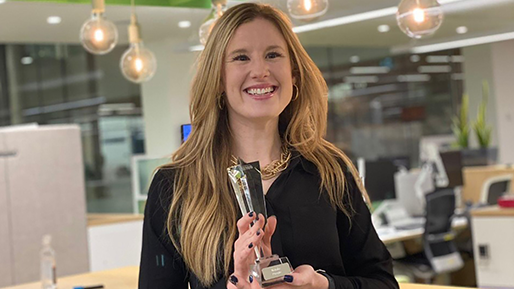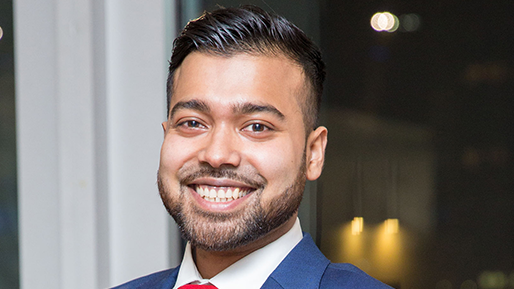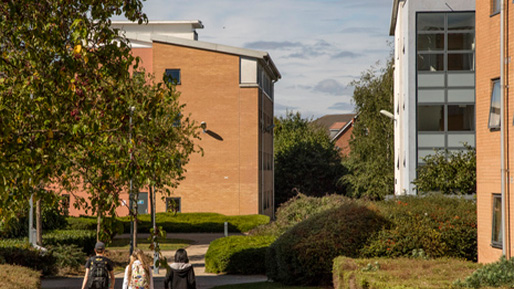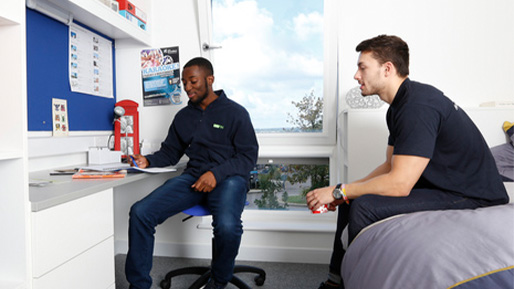
BA (Hons) Criminology and Criminal Justice
This course stands out by integrating criminal justice into the programme, offering students expanded learning opportunities, a wider range of career prospects, and the ability to make a greater societal impact than a standard criminology degree.
-
Typical offer: 112–120
Entry requirements -
Fees: £ 9,535 per year (UK)
Full details -
UCAS code: M211
-
Course length: Various
Find out more -
Location:
- University of Hertfordshire, Hatfield
-
Institute code: H36
-
Work placement option
Find out more -
Study abroad option
Find out more
Course overview
This criminology and criminal justice degree is designed to expand your understanding of criminology and criminal justice. You will gain a comprehensive insight into crime, criminological theories, and how environmental and sociological factors have influenced crime throughout history.
Criminology integrates the study of politics, law, psychology, society, and culture to explore the processes of criminalisation, the effects of crime, and the methods used in crime control and prevention.
Throughout the course, you will examine patterns and perceptions of crime both nationally and globally, as well as the impact of various punishment practices on offenders. You will also investigate issues such as diversity and discrimination within the criminal justice system, as well as police power and culture. Topics such as youth justice, emerging technologies for risk management, crime prevention, terrorism, and security will also be explored.
The programme introduces you to the theoretical perspectives and debates shaping criminology, alongside an in-depth look at the institutions, processes, and legal framework of the criminal justice system in England and Wales.
An optional placement year is available, offering the opportunity to gain valuable experience, develop key skills, and support your career aspirations. A range of authentic assessments, designed to mirror real-world tasks, will prepare you for future employment.
Why choose this course?
State-of-the-art learning environment
Study in the modern law School building, equipped with cutting-edge technology.
Gain practical experience in a full-scale replica Crown Court and the new crime scene facility, providing real-world crime scene analysis experience to enhance your career readiness.
Unique modules and co-curricular activities
Explore innovative and specialised modules such as Green Criminology, not widely offered elsewhere.
Participate in co-curricular activities designed to boost your CV, helping you stand out in the criminology and criminal justice sectors.
Strong employment outcomes and practical experience
Benefit from Herts’ high employment rates, with 93% of graduates in work or further study 15 months after graduation (Graduate Outcomes Survey, 2021/22).
Engage in real-world legal cases through the award-winning Hertfordshire Law Clinic, gaining valuable experience for your future career.
Attend career events and connect with industry professionals, including guest speakers from police, prisons, probation services, and forensic psychology, to build your network and industry profile.
Your future career
For the past 40 years, Herts has supported graduates in building successful careers. Previous graduates of the criminology degree have gone on to lead successful careers in various areas of criminal justice, including the police, prison services, and restorative justice practices. Others have chosen to pursue further studies at the postgraduate level.
Possible roles of employment include:
- fraud investigator
- crime journalist
- probation officer
- crime prevention officer
- victim support officer
- youth offending officer.
Close links with local authorities, the police and NGOs will help you to secure work placements. Plus, you’ll have access to sector events and a graduate programme through our partnership with the Transform Society.
To keep up with current industry affairs, modules are continuously reviewed and updated. Including a dedicated ‘employability’ module.
See what recent graduates are up to

Rhiannon Ellis
Hertfordshire Students' Union President at University of Hertfordshire
Meet Rhiannon Ellis, the current President of the Hertfordshire Students' Union who is looking toward a career in the police force.
Rhiannon admits to having a deep seated interest in the law but never felt that being a lawyer was where her heart lay. Her main focus was on the criminal justice system and why people commit crimes rather than being in a court room.
It is an area she is keen to explore and seemingly a world away from her current role as the Students’ Union President at Herts but when her term in office finishes in 2022 she is planning on joining the police force and aims to become a detective.
Study at Herts
Rhiannon didn’t start her studies as a Herts student but a chance visit had a great impact on her. She says, ‘I was actually studying at another University, but I had a couple of friends at Hertfordshire. I came to visit and I fell in love with the campus.
When I knew I wanted to transfer I attended an applicant open day in the Law School and I really enjoyed getting to sit in the mock law court building. All the staff where so friendly and informative and I just felt really at home from the minute I came here.’
Flexibility of modules
Rhiannon really enjoyed the course and studying in the Hertfordshire Law School. The flexibility involved was one of the key reasons and she says, ‘I got to choose what modules I was interested in for second and third year which gave me the flexibility to shape my degree around future job goals.
And in terms of the role she currently has and how the course helped her she adds, ‘My degree has helped by giving me background knowledge into wider issues such as gender-based violence which is something I have been focusing on tackling through our #NeverOk campaign within the SU. It also helped develop my time management and prioritising skills which are vital in this and many roles.’
Herts memories
When it comes to a favourite memory of her time at Herts Rhiannon points to a few in particular that stand out. ‘I met my two best friends on my first day in one of my seminars as we didn’t know anyone, and we ended up being sat on the same table together. Winning Overall Student of the Year and becoming President of the SU were also pretty big highlights!’
The future
And thinking about the future and her next steps Rhiannon says, ‘I am currently applying to become a detective once my role as President ends, so fingers crossed this ends up happening!'

Natalie Pringle
Start-up Programme Manager at CMS UK
Meet Natalie Pringle who has excelled in a varied career based across the UK and SE Asia. Natalie is listed in the 2021 TechWomen100 Awards and supports start-ups in the tech space through an accelerator programme run by international law firm, CMS.
Career Successes
Natalie is listed in the highly prestigious 2021 TechWomen100 Awards. These awards highlight remarkable women within the technology and STEM sector, and Natalie has been recognised for the technology focussed business start-up accelerator programme she runs at global law firm CMS. This programme provides legal advice, training, mentoring, and networking for clients all over the world, focussed on different markets. Natalie also offers thought leadership and speaks at industry events focusing on empowering women in technology.
Talking about the award Natalie said, 'I’m incredibly honoured to have been featured as a TechWomen100 and recognised by these prestigious awards. Run by the WeAreTechWomen team, the awards consistently feature the brightest stars and trailblazers in the tech industry, and it is a huge privilege to be included amongst them.'
Prior to joining CMS, Natalie was working in Asia and made the move when invited to establish the Hong Kong office of a London based real estate firm. This later led to her establishing her own property investment company which assisted clients throughout SE Asia. She also launched a division of The New Savvy, a financial investments and career platform in Asia, dedicated to helping women improve their financial wellbeing and raising awareness of the importance of financial literacy.
In addition to this she managed a programme for Hong Kong based Splash Foundation, which empowers individuals in under-resourced communities through swimming.
Natalie’s memories of Herts
Natalie took full advantage of the opportunities on offer within Hertfordshire Law School including extra-curricular activities like mooting, debating, trips to Inns of Court, as well as attending talks from guest speakers. She says, ‘These opportunities helped me gain confidence and have shaped the person I am now. This experience helped me to see that if you are willing to put your time and commitment, then many other doors will open for you.’
Her favourite extra-curricular activity was being involved in the mooting team as she competed across the UK. She says, ‘The skills I learnt while on the mooting team are invaluable and the overall experience was fantastic. These experiences have been extremely beneficial throughout my career and provided me with the knowledge and confidence to speak in public, research and shape a legal argument.’

Anwar 'Ash' Khan
Lawyer at British American Tobacco
Meet Anwar 'Ash' Khan who since graduating in 2010 has taken all of the opportunities presented to him.
Opportunities and experiences
Anwar credits his professional success to having had the opportunity to gain experience in both private practice and in-house legal counsel roles. He recognises the role the University of Hertfordshire has played in getting him to where he is today having studied Law at the University.
Throughout his degree, he learnt the importance of independent study but also the value of the group study exercises. These practical elements enabled him to learn and hone his research and communication skills in public as well as in a client advisory role.
Anwar speaks highly of the resources on offer and the academic staff who he says were always available to offer support. 'My lecturers supported me to tackle tricky subjects or areas which I had difficulty in improving on. I was never too great at coursework, but with their expertise and guidance, I was able to tailor my writing style to address key points in my coursework.'
Anwar's experience at the University was enhanced by the strong student community present on campus. He says, 'I stay in contact with many of my friends from university. Some have even offered me guidance and have helped with interview advice and roles following my degree. Some of my friends also went on to study the LPC as well.'
Aspirations for the future
He has been successful in achieving his career aspirations, capitalising on the support and opportunities his degree offered. He advises new and prospective students to do the same: 'Try your best. Don't have a fixed idea on what happens after graduation. Your opportunities are limitless. The skills you learn are made for the professional world. Take every professional opportunity available and make the best of the great staff there to advise you.'
Looking ahead, Anwar is excited for the next stage of his career but remains committed to doing more charity work. He recently carried out philanthropic work in Bangladesh and hopes to do more to help third world countries in the future.
What you'll study
During your criminology degree, you'll study a mixture of theoretical and practical based learning, primarily working independently, although you will get involved in activities to build on your team work skills. Throughout the criminology course, you will have opportunities to apply learnt knowledge to realistic scenarios, which is essential in getting you ready for industry.
A blended approach to learning gives you flexibility to balance life and study. While you will be required to engage in weekly seminars, there will be freedom to attend them in person or on demand. Seminars are recorded but we always advise to try attend in person.
In the first year, you’ll study several key topics including criminal investigations, understanding crime through media, stages of the justice system, behaviours of offenders and procedures of reintegrating ex-offenders back into society. You will also explore and debate whether prison sentences used today are harsh enough.
In the second year, you will begin to specialise in an area that fascinates you. You’ll also further develop your understanding as you analyse evidence, question controversial topics, debate opinions, and explore theories, reports, case studies, current issues and more.
You are in control of your third year, by choosing modules that interest you most. You will perform an in-depth analysis, underpinned by evidence, to formulate an option that will be challenged during verbal debates. Throughout this year you will also complete a dissertation and show evidence that you are continuously forming arguments that challenge the system, demonstrating your critical thinking and advanced academic abilities.
Optional sandwich year
Graduate with invaluable work experience alongside your degree and stand out from the crowd. This course offers you the opportunity to enhance your study and CV with a year in industry, typically between your second and third years of study. It’s a chance to explore career possibilities, make valuable contacts and gain sought after professional skills.
Research shows that over 70% of employers prefer students with work experience, which is why we believe work placements are career gold. Our Careers and Employment service are here to support you explore your options and make valuable contacts for your future career.
You’ll pay no tuition fee for this year and won’t need to worry about the details of your placement until your second year of study.
Study Abroad offers the opportunity for an amazing experience, which will help make you stand out from the crowd. With more and more companies working internationally, experience of living in another country can make a great impression on future employers.
This course offers you the opportunity to enhance your study and CV with a sandwich year abroad. The University has partnerships with over 150 universities around the world, including the USA, Canada, Asia, Africa, Australia, South America and closer to home in Europe.
If you study abroad between your second and third year of study, you’ll pay no tuition fee to the partner university and no tuition fee to us either. We’ll ask you to make your decision in your second year, so there is plenty of time to think about it.
Graduate with invaluable work experience alongside your degree and stand out from the crowd. This course offers you the opportunity to enhance your study and CV with a year in industry, typically between your second and third years of study. It’s a chance to explore career possibilities, make valuable contacts and gain sought after professional skills.
Research shows that over 70% of employers prefer students with work experience, which is why we believe work placements are career gold. Our Careers and Employment service are here to support you explore your options and make valuable contacts for your future career.
You’ll pay no tuition fee for this year and won’t need to worry about the details of your placement until your second year of study.
Find out more about work placementsStudy Abroad offers the opportunity for an amazing experience, which will help make you stand out from the crowd. With more and more companies working internationally, experience of living in another country can make a great impression on future employers.
This course offers you the opportunity to enhance your study and CV with a sandwich year abroad. The University has partnerships with over 150 universities around the world, including the USA, Canada, Asia, Africa, Australia, South America and closer to home in Europe.
If you study abroad between your second and third year of study, you’ll pay no tuition fee to the partner university and no tuition fee to us either. We’ll ask you to make your decision in your second year, so there is plenty of time to think about it.
Find out more about study abroad optionsWhere you'll study
You’ll share the de Havilland Campus with students from business, law, sport, and education subjects. As a law students you'll also have access to our modern Law School Building which will bring you a mixture of fantastic technology, well-equipped study spaces and realistic legal settings. Inside you’ll find our incredible replica Crown Court, complete with judge’s bench and viewing gallery, where you’ll practise your skills and build your confidence.
The student housing is close to our Sports Village which includes a gym, swimming pool and climbing wall. You can get breakfast, lunch, or dinner in our on-campus restaurant or bar (in the newly built Enterprise Hub) on days you don’t feel like cooking. You can also use the common room to play pool, video games or just to hang out with friends. Our Learning Resources Centres are open 24/7, which means you can study whenever suits you best. Want to pop over to the other campus? You can take the free shuttle bus or walk there in just 15 minutes.
Who you'll learn from
You will be taught by lecturers with substantial experience and insight into the criminal justice industry, and with first-hand public servant experience. Some lecturers have worked in the police, prisons, probation services, victim support and even the military.
The diversity of your lecturers has strongly influenced the course curriculum, ensuring it reflects industry needs, and that you learn the wide range of specialist information required.
They are continually expanding their knowledge, performing research in contemporary society concerns and around relatable proceedings that take place in the criminal justice system.
20th in the UK for research quality in criminology and criminal justice (Complete University Guide, 2024), we have research expertise in many criminal activity areas including gender, drugs, state and war, organised crime, cybercrime, terrorism, youth justice and more.
Throughout the course you will have a personal support tutor and cohort leader who will guide you and provide a safe environment for you to voice any concerns.
Check out our student blogs
How we support our students
At the University of Hertfordshire, we want to make sure your time studying with us is as stress-free and rewarding as possible.
We offer a range of support services, from childcare to counselling, ensuring that you make the most of your time at Herts and can focus on studying, having fun, and have the support you need.

Student Blogs
Leah Thomas – Studying during a pandemic
Experiences of my course
I am happy to say that I have many positive experiences here at university especially regarding my course. The University of Hertfordshire offers a lot of co-curricular activities for my course which is one of my favourite things about the University. I study criminology and criminal justice, and just recently they started a ‘becoming a detective’ co-curricular activity for the criminology students. This is just one of many opportunities they have for students to get involved in. I found this one particularly good as they got a real detective to deliver the session which I found better. The turnout was also better than expected. It was very engaging and at first it was nerve racking to get involved in the discussions and debates but once it got started, I loosened up a bit. It was also insightful as I believe it can help find out the direction I would like to go in the future regarding careers. We went through different ways you can track down witnesses when needed, the type of evidence that is admissible in court and the kind of questions one would ask victims and witnesses along with so much more. Another fun experience I’ve had on my course was a trip to an old court from the 1800s, for one of my modules. It was for my History of Crime module and we re-enacted a court case from the 1800s. I was happy with the trip since it was fun and I met new people that I didn’t even know were on my course.
University during the pandemic
I’m grateful that university life during the pandemic has not changed drastically for me. Quite a bit has changed which is inevitable due to the circumstances this year, but I can still do the things that are essential for my learning like go to the library on de Havilland. The library and most study spaces are still open which is good because I cannot work in my room. The enterprise building which is a study space and café is open but since lockdown the café closed. The library is open until 10pm, as opposed to before when it was open 24 hours, due to the pandemic. I am able to still see my peers since my learning is currently 50/50 online and in person, however I am aware of the precautions the University will be taking in December due to coronavirus, which is moving all learning online. For example, my seminars will now be online zoom classes along with lectures. The University is also allowing a period where the students can travel home for Christmas which is reassuring. I feel safer with the precautions the University has been taking regarding the pandemic and lockdown. For the in-person seminars we were required to wipe down the desks and social distance within the classroom along with wearing masks. Each room has stickers on the desk so that it is clear where we can sit in order to social distance to help stop the spread of the virus. In terms of the pandemic it hasn’t necessarily stopped me from participating in co-curricular activities and I am still enjoying my time at university.

Student Blogs
Leah - Things you should know
Things to know before coming to Herts
I cannot speak on behalf of other courses but when it came to criminology and criminal justice, I had what felt like a lot of free time. Having said that, I would heavily recommend timetabling your week. At first, I felt a little overwhelmed with the jump from A-levels and the new feeling of fending for myself completely. It was hard to handle it all but once I started to plan out my week it helped so much, and I had such an enjoyable time at university. This obviously does not mean you should plan your week or month to a tee, but it was so helpful to have an idea of what I should be doing. Of course, things come up especially when it comes to the events that are held all the time, but it helped immensely.

Student Blogs
Lisa - Who am I?
Hi guys!
My name is Lisa and I’m about to start my second year as a BA Criminal Justice and Criminology student. I’m approaching my 21st birthday in October, so you’ve probably already guessed I didn’t start university at 18. I stayed an extra year at sixth form and earned some money by working in a Chinese take-out during my spare time. I’m not your typical northern lass, but I was born in Yorkshire, so moving to Hertfordshire was such a big step as I am now living life as a ‘southerner’. Currently I live on College Lane Campus, but in September I’ll be moving into private student accommodation with five of my best friends, closer to de Havilland Campus (De Hav).
Applying to university was a lot easier than I initially expected, but the stress came on the run up to A Level results day. I made the decision to study at Herts independently, my parents visited a couple of open days and found they were also confident I’d be happy here. So some top tips for applying to university; research your course, make sure it’s a field you’re interested in, take advantage of open days and taster sessions, talk to your friends, family and teachers. Don’t panic! I’ve got plenty more, but I’ll save those for another post.
After graduation I plan on going to work for the London Metropolitan Police. I’m in the process of beginning my work placement at Hertfordshire Constabulary. During the assessment stage for Hertfordshire Constabulary, I was pulled aside by an officer who was exceptionally impressed with my exam results for the position of Special Constable. I was informed that I’d be a great candidate for the Accelerated Detectives Program which I plan on participating in during my final year.
Fun facts about me:
- My favourite place on campus, besides subway is probably the campus green by accommodation, my friends and I have spent many summer days and evenings hanging out and making memories there. The Forum isn’t too bad either 😉.
- My favourite lecturer is Kofi Addo, he is so welcoming, funny and always extremely helpful.
- My favourite go to meal would probably be £5 pizza deal from Pizza Hut, but a go-to homemade meal would be pasta carbonara as I can bulk cook. (Downloading Just Eat is a must!).
- My favourite moment of university so far is hard to choose so I would have to say either Fresher’s week, meeting everyone and making new friends, or the summer ball once all my exams were finished.
- If I had to describe my first year in a few words I’d say… action-packed.
See ya next time.
Entry requirements
The University of Hertfordshire is committed to welcoming students with a wide range of qualifications and levels of experience. The entry requirements listed on the course pages provide a guide to the minimum level of qualifications needed to study each course. However, we have a flexible approach to admissions and each application will be considered on an individual basis.
| Typical offer (UCAS points) | 112–120 |
|---|---|
| Typical A Level offer | BBC–BBB |
| Typical IB offer | 112 –120 points |
| Typical BTEC offer | DMM–DDM |
| Accepted T Levels | Design Survey and Planning for Construction; Design Production, Design and Development; Education and Childcare; Healthcare Science; Health; Science; Digital Support Services; Digital Business Services; Onsite Construction; Building Services Engineering for Construction; Accounting; Design and Development for Engineering and Manufacturing; Engineering, Manufacturing, Processing and Control; Finance; Maintenance, Installation and Repair for Engineering and Manufacturing; Management and Administration; Agriculture, Land Management and Production; Legal Services |
| GCSE | Grade 4/C in English Language and Mathematics |
| Access course | An overall merit profile in 45 credits at Level 3 |
| Additional information | Find out more about our Undergraduate Entry Requirements. |
| English language | All students from non-majority English speaking countries require proof of English language proficiency, equivalent to an overall IELTS score of 6.0 with a minimum of 5.5 in each band. If you do not have the required IELTS or equivalent for direct entry on to your degree programme, our Pre-sessional English and International Foundation courses can help you to achieve this level. |
|---|---|
| Additional information | Find out more about International Entry Requirements. |
Ready to apply?
UK and EU applicants with pre-settled/settled status in the UK
| Start date | Study type | Apply |
|---|---|---|
| September 2025 | Full time | Apply via UCAS |
| Full time with placement year | Apply via UCAS | |
| Full time with study abroad year | Apply via UCAS | |
| Part time | Apply via Herts |
International and EU applicants without pre-settled status in the UK
Fees and funding
At Herts, we’re dedicated to providing world-class teaching supported by industry-level facilities and incredible social spaces. We believe cost shouldn’t be a barrier to higher education, and we strive to keep both our standard and additional costs as low as possible.
| Study type | Fees | |
|---|---|---|
| UK students | Full time | £9,535 for the 2025/2026 academic year |
| Part time | £1,190 per 15 credits for the 2025/2026 academic year | |
| EU students | Full time | £15,965 for the 2025/2026 academic year |
| Part time | £1,995 per 15 credits for the 2025/2026 academic year | |
| International students | Full time | £15,965 for the 2025/2026 academic year |
| Part time | £1,995 per 15 credits for the 2025/2026 academic year |
Tuition fees are charged annually. The fees quoted above are for the specified year(s) only. Fees may be higher in future years, for both new and continuing students. Please see the University’s Fees and Finance Policy (and in particular the section headed “When tuition fees change”), for further information about when and by how much the University may increase its fees for future years.
| Scholarships, grants and bursaries | Depending on your circumstances, you may be eligible for a non-repayable scholarship, grant or bursary to support your studies. |
|---|---|
| Disabled Students' Allowance | The Disabled Students’ Allowance can cover any study-related costs you have because of a mental health problem, long term illness or any other disability. |
| Student loans | Find out about securing a student loan, from how much you could be eligible for to when you need to start making repayments. |
| Accommodation costs | We offer a great choice of student accommodation, on campus or nearby in the local area, to suit every student budget. |
| Additional course fees | Read more about additional fees in the course fact sheet. |
More about the course
| Course fact sheets | |
|---|---|
| BA (Hons) Criminology and Criminal Justice | Download PDF |
| Programme specifications | |
|---|---|
| BA (Hons) Criminology and Criminal Justice | Download PDF |
| Additional information | |
|---|---|
|
Applications open to international and EU students |
Yes |
Course length |
Full Time, 3 YearsPart Time, 6 YearsSandwich, 4 Years |



